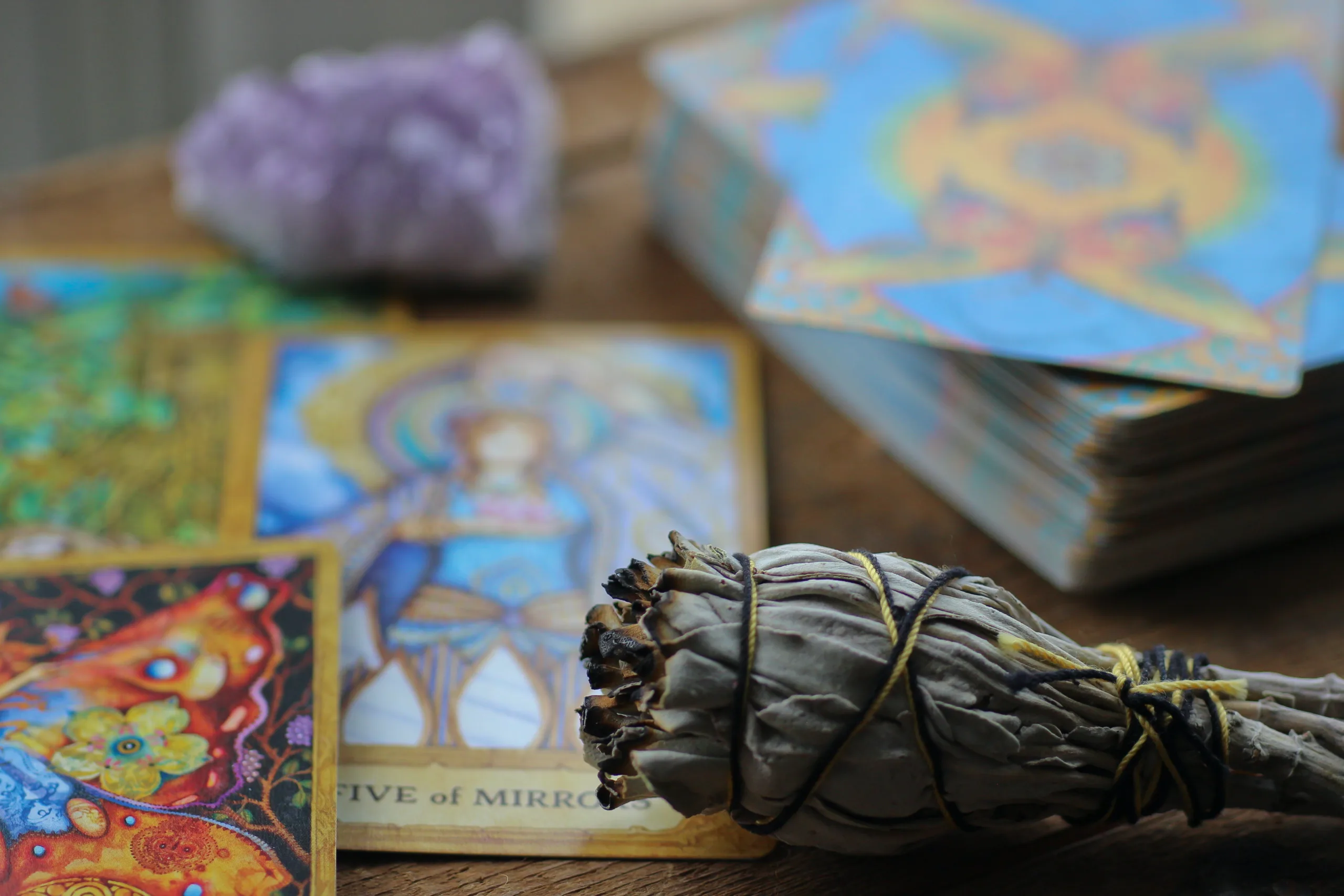How Will I Die Tarot Spread: An In-depth Discussion
Ever found yourself curious about the age-old tarot practice and its ability to potentially answer the mystery of life and death? There’s something especially intriguing about the "How will I die tarot spread?". This phrase might seem creepy, yet it attracts toward a quest for knowledge about the great unknown.
 Image by Kayla Maurais. Source: Unsplash.
Image by Kayla Maurais. Source: Unsplash.
Understanding the Essence of Tarot Spreads
Tarot spreads are arrangements of cards drawn from a shuffled deck during a tarot reading. Each position of the spread represents a particular aspect of the inquiry. The tarot reader interprets these cards within the context of the spread, the question asked, and their intuitive understanding of the symbolism present in each card.
The Significance of "How Will I Die" Tarot Spread
The "How will I die?" tarot spread is significantly enveloped in mystery and curiosity — an irresistible combination for most. While it’s often approached with trepidation, insightful readers are careful not to take this query too literally. They focus more on themes like personal transformation, rebirth, or reflection about one’s lifestyle choices instead of dooming predictions.
The Ethical Considerations Involved in Death Predicting Tarot Spreads
Ethics and responsibility come into play when discussing death predicting tarot spreads. Being sensitive and considerate is crucial, given that interpretations can greatly impact someone’s emotions, decisions, and outlook toward life. Reputed readers typically steer away from engendering fear or alarm via such readings. They rather aim to provide guidance for personal growth.
Unfolding the Mystery of "How Will I Die" Tarot Spread
Now that we have touched on what tarot spreads are and their ethical boundaries let’s delve deeper into interpreting them, specifically, understanding how a "How will I die?" tarot spread might work.
What Does Each Card Position Mean In The Spread?
In a typical death-related tarot spread, different card positions correspond to various aspects of the question. One card may denote past influences that are impacting the querent’s current situation, another might be shedding light on subconscious fears or desires, while some might suggest future outcomes or potential transformative journeys.
How To Interpret a Single Card In Relation to Death Question?
A single card in relation to a death question isn’t indicative of physical demise. Instead, it’s a symbolic gateway into profound corners of querent’s subconsciousness. Every card resonates with specific energies and interpretations that the reader aligns with querent’s life path, experiences, and circumstances.
Curating and Conducting Your Own "How Will I Die" Tarot Spread
Tarot enthusiasts who are intrigued by the mystery surrounding this unique tarot spread might want to conduct their readings.
Selecting the Right Deck and Creating a Sacred Space
Preparing for a tarot reading involves choosing an appropriate deck that you resonate with and creating a calm, sacred space conducive for introspection. If your reading is specifically about life and death mysteries, decks rich in symbolism like Rider-Waite or Thoth could be well-suited.
Decision Making: Which Cards to Draw?
The number of cards in a spread and their meanings greatly depend on what exactly you’re asking and your comfort level with interpreting numerous cards. It could be as simple as a three-card spread showcasing past, present, and future or it could encompass complex ten-card Celtic Cross spread for more in-depth analysis.
How to Read and Connect Multiple Cards in A Spread
In multi-card spreads, each card is read in relation to others around it. The art of linking the cards helps unveil deeper insights. Pay attention to overarching themes, common symbology, and patterns amongst the cards that might bring clarity to the question at hand.
Demystifying Commonly Misinterpreted Cards
Interpreting tarot cards isn’t about literal meanings but grasping the esoteric essence radiating from each card’s symbolism.
The Death Card: Transformation, Not Physical End
The Death Card, in tarot, symbolizes transformation or the end of a cycle rather than physical death. If it appears in relation to ‘How will I die?’ question, it possibly mirrors a need for significant change or transition in life.
Other Commonly Misread Cards in Death-Related Spreads
Other ominous cards like The Tower or The Devil often get misinterpreted. Their appearance might denote upheaval or a confronting challenge and not any harmful physical affliction.
FAQs:
-
What’s the ethical controversy surrounding death-related tarot spreads?
The ethical controversy arises from the potential fear or distress readers can cause by predicting death. Reliable readers prioritize emotional well-being and personal growth over sensational interpretations. -
Can a tarot spread accurately predict how someone will die?
Tarots are not concrete predictors of literal events. They are tools highlighting deeper themes and energies at play. Thus, specifying how someone will die is beyond their scope. -
How can one ensure an accurate reading with death-related tarots?
Ensuring accuracy depends on the reader’s intuition, understanding of tarot symbolism, and sensitivity to querent’s emotional and mental state. -
Should beginners attempt ‘how will i die’ tarot spreads?
It’s a personal choice. However, considering the depth and seriousness of these spreads, it would be best if handled with experience, maturity, and understanding.
Conclusion: Embracing Uncertainty and Focusing on Growth Through Tarots
Concepts like the "how will I die tarot spread" remind us about our fascination towards the unknown. While we might not fetch literal predictors from tarots, they indeed mirror philosophies of change, growth, and adaptability. Our destiny might be enigmatically uncertain, but it’s this uncertainty that opens pathways toward self-evolution. Channel your curiosity to learning from these mystic arts rather than fearing them.